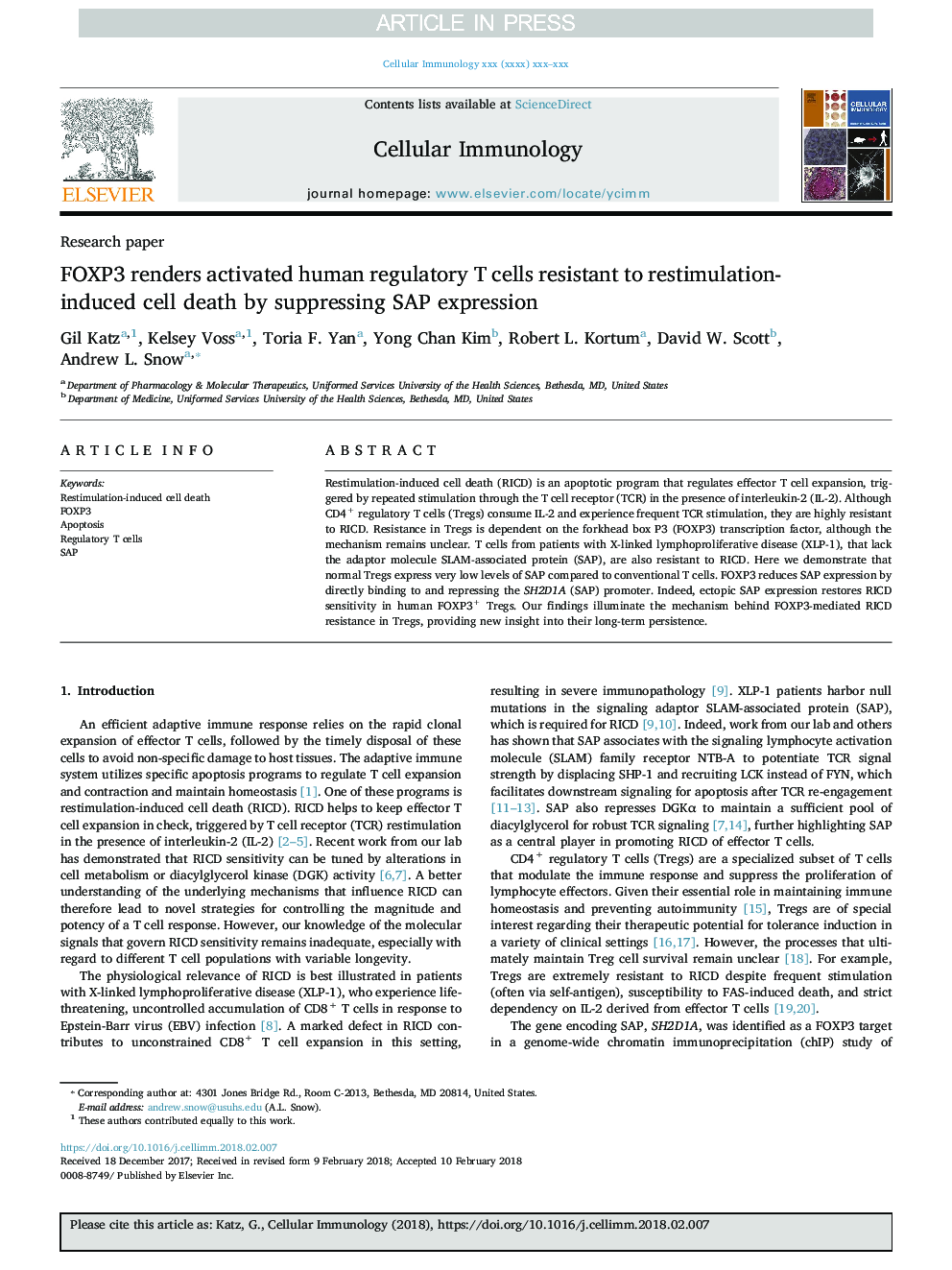| Article ID | Journal | Published Year | Pages | File Type |
|---|---|---|---|---|
| 8463561 | Cellular Immunology | 2018 | 8 Pages |
Abstract
Restimulation-induced cell death (RICD) is an apoptotic program that regulates effector T cell expansion, triggered by repeated stimulation through the T cell receptor (TCR) in the presence of interleukin-2 (IL-2). Although CD4+ regulatory T cells (Tregs) consume IL-2 and experience frequent TCR stimulation, they are highly resistant to RICD. Resistance in Tregs is dependent on the forkhead box P3 (FOXP3) transcription factor, although the mechanism remains unclear. T cells from patients with X-linked lymphoproliferative disease (XLP-1), that lack the adaptor molecule SLAM-associated protein (SAP), are also resistant to RICD. Here we demonstrate that normal Tregs express very low levels of SAP compared to conventional T cells. FOXP3 reduces SAP expression by directly binding to and repressing the SH2D1A (SAP) promoter. Indeed, ectopic SAP expression restores RICD sensitivity in human FOXP3+ Tregs. Our findings illuminate the mechanism behind FOXP3-mediated RICD resistance in Tregs, providing new insight into their long-term persistence.
Keywords
Related Topics
Life Sciences
Biochemistry, Genetics and Molecular Biology
Cell Biology
Authors
Gil Katz, Kelsey Voss, Toria F. Yan, Yong Chan Kim, Robert L. Kortum, David W. Scott, Andrew L. Snow,
